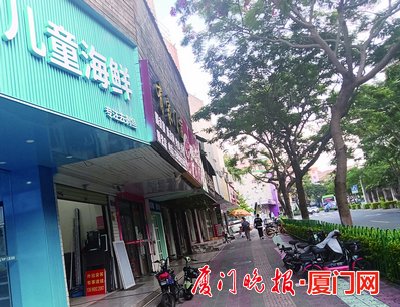It is important to find the cause of the disease in time after the blood pressure decreases
Author:Sunset Time:2022.08.09

Mr. Zhang, a patient with hypertension, was very puzzled recently: obviously taking antihypertensive drugs every day on time, blood pressure self -test also shows normal, but often feel dizzy. In this regard, Zhang Xiaojuan, deputy chief physician of the Department of Cardiovascular Department of Sichuan Provincial Hospital (Provincial Hospital), reminded that after the blood pressure of the elderly decreases, frequent symptoms such as dizziness, headache, etc. must be highly suspected. Related, you need to find the cause as soon as possible, and then treat it.
Settle the pressure step by step
The blood pressure of some patients with hypertension has been at a high level before lowering blood pressure. If it decreases too fast in a short time, it is easy to cause dizziness and headache. In addition Donestion such as chest tightness.
Patients with hypertension should be treated step by step according to the guidance of the specific condition, under the guidance of cardiovascular specialists, controlling pressure, controlling for several weeks or months, and gradually decreased to normal levels. Especially for the elderly and patients with a long course of illness, they need to strictly adjust the use of pressure reduction medicines.
Ask the doctor to adjust the dose
Although the side effects brought by correctly taking antihypertensive drugs are minimal, it is still necessary to pay attention to the adverse reactions caused by certain drugs. For example, calcium ionic channel blocking agents may cause increased heart rate, headache, redness, and edema of the lower limbs; diuretics may cause electrolyte disorders, which leads to fatigue, gout attacks, and arrhythmia; It may cause slow heartbeat, conduction block, heart failure aggravation, etc.; Vascular tensioner converter enzyme inhibitors may cause dry cough, rash, hyperkalemia.
Once the above symptoms occur after taking the medicine, you need to adjust the dose and type of antihypertensive drug under the guidance of a doctor. The specialist will adjust the most suitable drugs and doses for the patient's specific condition.
Be wary of other diseases induced
In addition to the side effects of antihypertensive drugs, dizziness and headache caused by other diseases also need to be alert. For example, patients with cervical spondylosis are often accompanied by neck pain, soreness, and numbness of the upper limbs, while patients with Menier disease often accompanied by bad symptoms such as tinnitus and decreased hearing.
Special reminder: Hypertension does not necessarily cause dizziness, and dizziness is not necessarily high blood pressure. The process of antihypertensive treatment must not only be satisfied with "lower blood pressure to normal." Not only should blood pressure control the target value, but also to protect the function of target organs such as heart, brain and kidney. Patients should check other diseases in a timely manner under the guidance of cardiovascular specialists and implement individual chemical pressure treatment plans in a targeted manner. (Yang Min reporter Yang Min)
- END -
This kind of yellow flower is twice as expensive. Is "children's seafood" really more nutritious and healthier?

■ Open children's seafood stores near the lotus. (Photo by Zhang Haijun)■ Childr...
Plastics Scholars | Knowing "Eight Elements of Life", attached to "Heart Hand Exercise"

[Plastics Scholarship opens column] Care for life with heart, extend the service w...